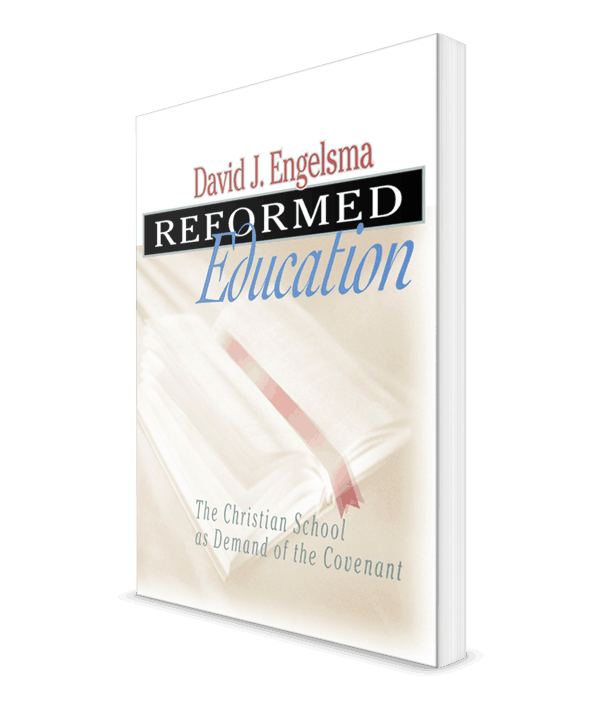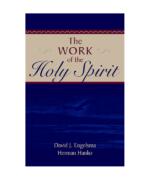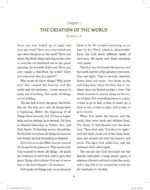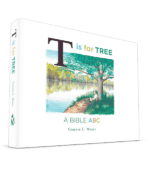In a tradition that goes back hundreds, even thousands, of years, godly parents in the churches of the Protestant Reformation establish and maintain Christian schools for the instruction of their children. This involves struggle and sacrifice. These parents willingly pay the price in the conviction that, as one of the Reformed confessions expresses it, good Christian schools are a “demand of the covenant.”
Reformed Education is an explanation for the people of God of the fundamentals of Christian day-school education. The book demonstrates that the basis of the Christian school is God’s covenant of grace with believers and their children. Treating such vital subjects as the place of Scripture and the creeds in the school, the biblical view of culture, the qualifications and calling of the Christian schoolteacher, and the goal of education, the author contends that the covenant of God controls and shapes all aspects of the Christian school.
In the course of this explanation, the book defends Christian schools against serious challenges – challenges as old as the claim that the state schools are adequate and challenges as new as the home-schooling movement.
This is the book to put in the hands of all believing parents. It will encourage those committed to Christian education. It will educate those who are doubtful. Christian schoolteachers will benefit from the book’s description of their work: a divine calling to help in the rearing of the covenant child. Indeed, if the author is right in saying that all members of the church, whether parents or not, should support the Christian education of the children of believers as the church’s own children, all can read the book with profit.
Reformed Education, The Christian School as Demand of the Covenant, David J. Engelsma. Grandville, MI: Reformed Free Publishing Association, 2000. Pp. x-101. [Reviewed by Ron Koole.]
The Reformed Free Publishing Association has done all Reformed believers a great favour by publishing a revised edition of Reformed Education. This is a book which Reformed parents who seek to rear their children in the fear of the Lord, and Reformed teachers who seek to assist believing parents in this calling will want to read and periodically reread. This book provides encouragement as well as biblical direction to parents, teachers, and all involved in the task of educating the children of believers.
The original edition of Reformed Education, out of print for a number of years, contained five lectures which Prof. David J. Engelsma presented in 1975 to a gathering of Protestant Reformed teachers at a summer mini-course sponsored by the Federation of Protestant Reformed School Societies. This revised edition has undergone thorough editing and contains a few significant additions which add to the quality and value of the book. One such addition addresses the increasingly popular home-schooling movement. Prof. Engelsma shows why home-schooling is not an option for Reformed parents where good Christian schools exist or where the possibility of the establishing of a Christian school presents itself.
The author shows from Scripture that the basis of Christian education is God’s covenant of grace. This covenant is explained as a relationship of friendship between God and His people in Jesus Christ; as a cosmic covenant, a covenant established with believers and their children in the line of continued generations. On this basis the whole endeavour of Reformed, Christian education depends. This basis determines the nature of the instruction in the Christian school and also defines the goal. Many attack this covenantal basis and establish Christian schools on other bases today. Some seek simply to escape the evil of the public schools, others seek to evangelize the children, while so many today attempt to provide education which will work to reform society and Christianize the world. Fail to establish the Christian school on this covenantal basis and the school will fail to accomplish its proper biblical goals, or the school will pervert the goals to fit its own basis.
The nature of the instruction in the Christian school must be biblical and confessional. The teaching of all the subjects in the light of God’s Word gives unity to the instruction and is the only possible way to teach the truth. The activity of rearing covenant children in the fear of the Lord finds its foundation in the Scriptures and the Reformed confessions, which are the authoritative interpretation of the Scriptures. This, says the author, is the hard work which every Reformed teacher must strive to carry out.
The goal of Reformed, Christian education flows out of the covenantal basis. The author warns that Christian education must not start in the Spirit and then end with some fleshly goal such as the successful, cultured gentleman. The goal rather is the “mature man of God, who lives in this world in every area of life with all his powers as God’s friend-servant, loving God and serving God in all of his earthly life with all of his abilities, and who lives in the world to come as a king under Christ, ruling creation to the praise of God, his Maker and Redeemer” (p. 84). This goal has two aspects. One aspect is that the child eternally praises God, and the other is a temporal aspect in which the child lives a life of holiness in this world.
Yes, the Reformed child of God must be taught to live antithetically in this world. A chapter entitled “Reformed Education and Culture” deals specifically with the justification and possibility of a Reformed school’s teaching a liberal arts education and making use of the works of unbelievers. The author warns against the dangers of world-conformity on the one hand and world-flight on the other. The Reformed world and life view recognizes that this world is God’s creation, which has been redeemed by Jesus Christ. It is in this context especially that the author shows the devastating effects of the false doctrine of common grace. This false doctrine minimizes the fall, breaks down the antithesis, and calls the Christian to cooperate with the world to build up society. Following this doctrine to its conclusion eliminates any need for Christian education.
God places the responsibility to teach covenant children on believing parents. This is why Christian schools must be parental schools. This is also why the teacher stands in the place of parents and is a humble servant. The teacher must love the children of God’s covenant. In a chapter dealing with the Protestant Reformed teacher, the author states the following as the credentials of the good teacher: full of the Spirit and grace of God, thoroughly Reformed, and possessing the ability to teach. Every teacher should be awestruck with his calling and “should feel that he would not accept such a position for a million dollars, and that he could not leave it for two million” (p. 78). With a proper understanding of the relationship of parent and teacher there will follow a close unity of home and school.
In the preface the author informs the reader that in this revision he resisted the temptation to expand the subjects. The average reader thanks him for this. The book presents the truth concisely, as well as defends and warns against dangers and attacks on that truth. For those who desire to read further on particular topics, the author provides an extensive list of other works, in a bibliography and within the footnotes.
As has been stated, all believers will benefit from reading this book. Parents will strive with greater zeal and with all their heart to maintain or establish a good Christian school. Teachers and administrators will grow to understand better their calling and the nature of their work. Board members will be better qualified to observe, interview, and hire teachers. They will also glean principles which should govern decision making in the areas of enrolment and curriculum. Aspiring teachers will be better prepared to interview for a teaching position. And all believers will grow in their understanding of this glorious work. There is power in education. May Reformed Christians use that power to the development of the whole of the child to the service and glory of God—because Christian education is a demand of the covenant.
“[Reformed Education] is a return to the teaching of Scripture … The final chapter on the goal of Reformed education is a gem in many ways” (The Outlook).
“Three essential aspects of the covenant are shown to apply to the way we view education—in it God gives us work to do—by it God gathers up the whole of His creation—and God establishes His covenant with believers and their [elect] children in the line of continued generations … READ THIS BOOK!” (The Evangelical Presbyterian).
“I finished reading Reformed Education yesterday. What a blessed book it is! I was particularly struck by the section on ‘Reformed Education and Culture’ … I found the chapter on the ‘Protestant Reformed Teacher’ really moving! I studied for a post-graduate certificate in primary school teaching at the Church of England Teacher Training College in Norwich, where I’d studied for a degree in Social Studies at the University of East Anglia … Our tutor was a retired lecturer in the Philosophy of Education but ‘in loco parentis’ was not mentioned … Only fairly recently, on reading about the development of education for all here in England, did I come across the fact that schools and their teachers were supposed to be ‘in loco parentis’! It makes all the difference in the world, doesn’t it? It has so much opened my eyes to what is tragically happening here now, with the state taking over the education of children and out of the hands of their parents—very socialist, even communistic!” – England
The first chapter, “The Covenant Basis of Christian Education” and the second chapter, “Scripture in the Schools”, can be read on-line in Spanish. The Spanish edition of this book can be purchased through Amazon.











